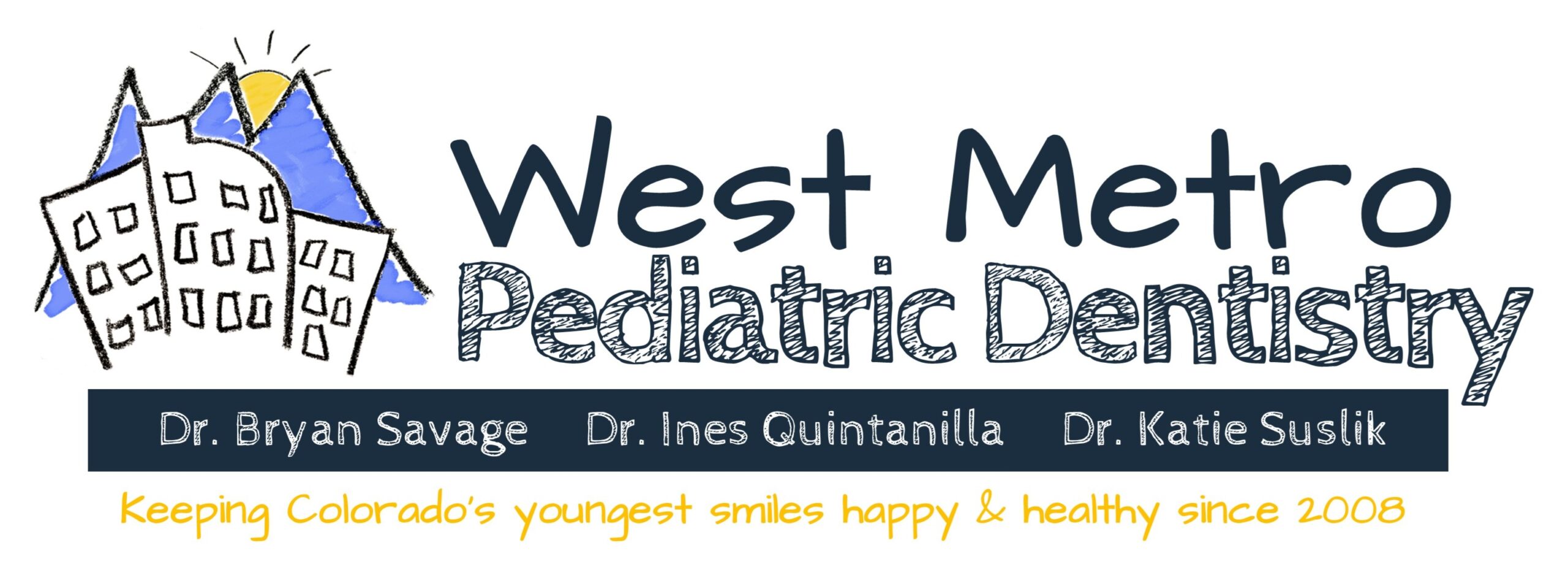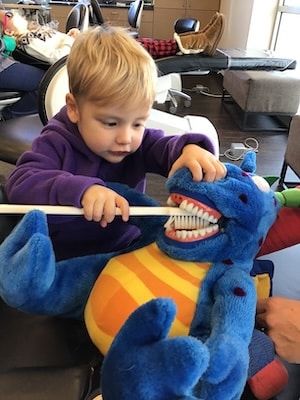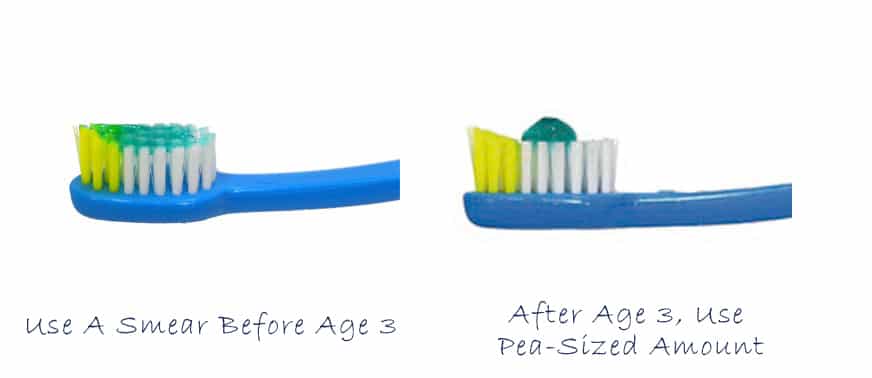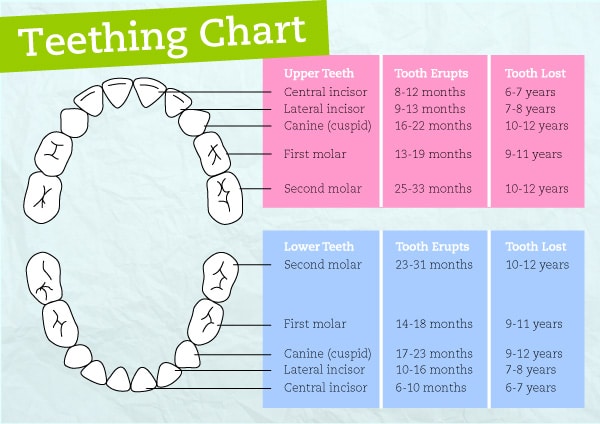Infant/Toddler Oral Health
10 Things To Know About Oral Health For Your Infant, Toddler, And Preschool Aged Children
Teething Timing
Infants typically start to get their primary (baby) teeth between 4-12 months of age. These teeth continue to come in through 2-3 years old. Babies usually get their bottom two front teeth first, followed by their top two front teeth.
Teething Symptoms
Symptoms of teething can start several weeks before the teeth actually erupt. The most common symptoms are irritability, excessive salivation or drooling, and some localized discomfort or gum swelling. A secondary side effect of that excessive drooling are patches of irritated or dry skin on your child’s chin and/or cheeks. Fever, diarrhea and rashes are often thought of as symptoms of teething but actually are not related.
Toothbrush Timing
The sooner the better when it comes to starting with a tooth brush. Before your baby’s teeth actually erupt, it’s great to get into the habit of wiping their gums with a soft, wet cloth after each feeding. Once baby teeth erupt, start to brush their teeth with a soft infant toothbrush or finger brush at least twice a day, and ideally after each feeding (especially at night).
Toothpaste Amounts
With the eruption of your child’s teeth, you want to start using a fluoridated toothpaste. However, only use a tiny smear of that paste until around the age of 3, or when your child can spit appropriately. At that age, you can increase to a small pea size amount. There are so many fun flavors of toothpaste now-as long as its fluoridated, whatever flavor/texture your child likes is the one to use.
Thumbs & Pacifiers
Habits like thumbsucking & pacifiers are perfectly normal for infants. If your child does not stop naturally, we like to have pacifier habits stop by the age of 2, and thumb habits at 3 years old. Prolonged sucking can create crowded, crooked teeth, or bite problems. We will be glad to suggest ways to address a prolonged sucking habit.
Bottles & Sippy Cups
Don’t let your child go to bed with a bottle–milk or formula resting on teeth all night creates a breeding ground for dental decay. For the same reason, save milk & juice for meal times only. If your child drinks from a bottle or sippy throughout the day, it should only have water in it. Try to switch from a bottle to a sippy cup, and then to a regular cup, as soon as possible. We love the 360 style sippy cups!
Going To The Dentist
Once your child’s first teeth erupt, its time to come to the dentist. We recommend first tooth-first birthday-first dental visit. This helps us establish a dental home for your child at an early age, and gives you an opportunity to ask any oral health questions you might have for your toddler.
Flossing Timing
It’s great to get into the habit of using floss sticks right away, but definitely once your toddler’s baby molars start to come in (1-2 years old).
Bumps & Falls
Once your baby starts toddling around, there are bound to be some bumps and falls. If your child bumps or chips a tooth, tears their gum, or loses their baby tooth a little too soon, just give us a call – we’ll ask a few questions and walk you through next steps.
Baby Teeth Matter
Primary, or “baby,” teeth are important for so many reasons. Not only do they help children speak clearly and chew naturally, they also aid in forming a path that permanent teeth can follow when they are ready to erupt. We love happy, healthy baby teeth around here – this means happy, healthy permanent teeth in the future.
The “Littles” and Their First Pediatric Dental Visit
We feel it is so important to make sure your child visits the dentist early that we offer all patients under 2 FREE new patient exams!
About Brushing & Flossing
About Teething: Symptoms & Comfort
About Thumb, Finger, & Pacifier Habits
Nursing, Bottles, & Sippy Cups
For babies and toddlers, liquids are one of the biggest concerns related to oral health. Here are four tips to help:
- When nursing, be sure to clean baby teeth after each feeding—especially at night.
- Never let your child go to bed with a bottle.
- Don’t let your child walk around with or drink throughout the day from a bottle or sippy cup with anything except water in it. Milk & juice should be saved for meal times only.
- Try to switch from a bottle to a sippy cup, and then to a regular cup, as soon as possible.



